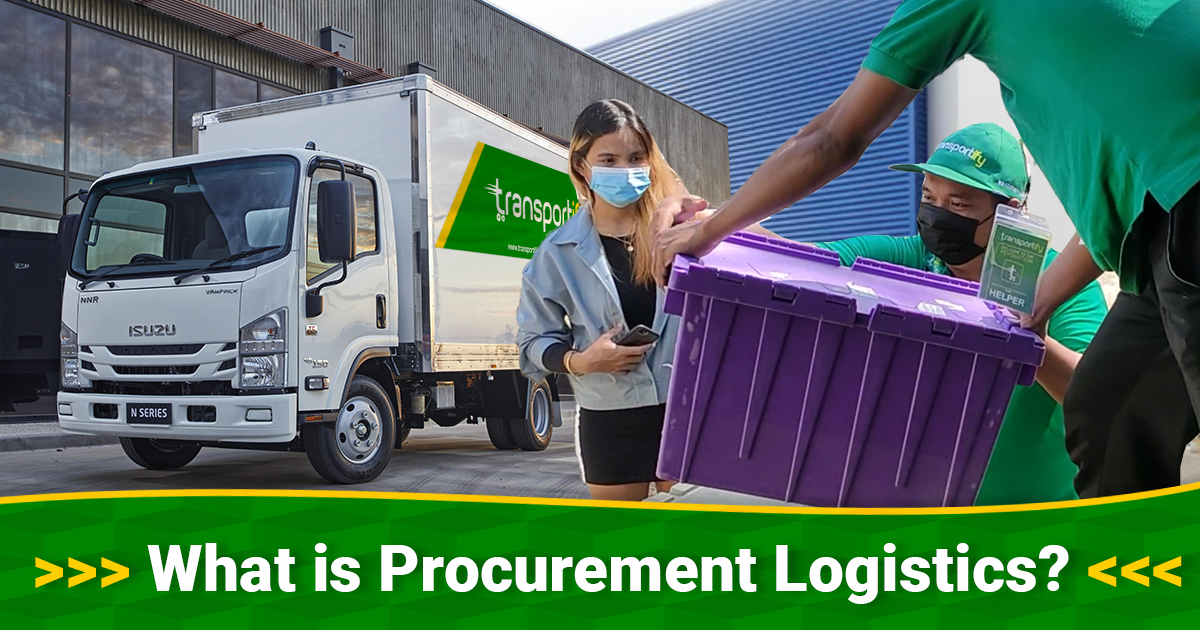
Logistics is vital to any company, especially in manufacturing and retail. It encompasses the transportation and management of goods and materials. To ensure that your business runs smoothly, it is important to understand procurement logistics meaning and its challenges. Poor management of this stage in the supply chain can lead to delays in shipments, damaged goods, and even loss of money.
If you want to avoid these problems, we’re here to help. Do you ever feel like your company is facing one procurement logistics challenge after another, with no end in sight? If so, this blog post is for you. We’ll discuss some of the most common problems companies face and offer solutions to help you overcome these challenges.
What is Procurement Logistics Meaning?
Procurement logistics meaning of acquiring, storing, and managing resources needed to support an organization’s operations. It encompasses a wide range of activities, including sourcing, procurement, warehousing, transportation, and distribution. The goal of procurement logistics is to ensure that materials and supplies are available when and where they are needed while minimizing costs.
Many businesses are now relying on procurement logistics meaning to streamline their operations and save time and money. However, this process is not without its challenges. Let’s look at some of the most common problems companies face when it comes to procurement logistics.
Common Challenges Faced by Companies Regarding Procurement Logistics
Similar to the other parts of the business, procurement logistics also have challenges. Many of these procurement logistics challenges are caused by similar reasons. In this part, we would like to share some of them.
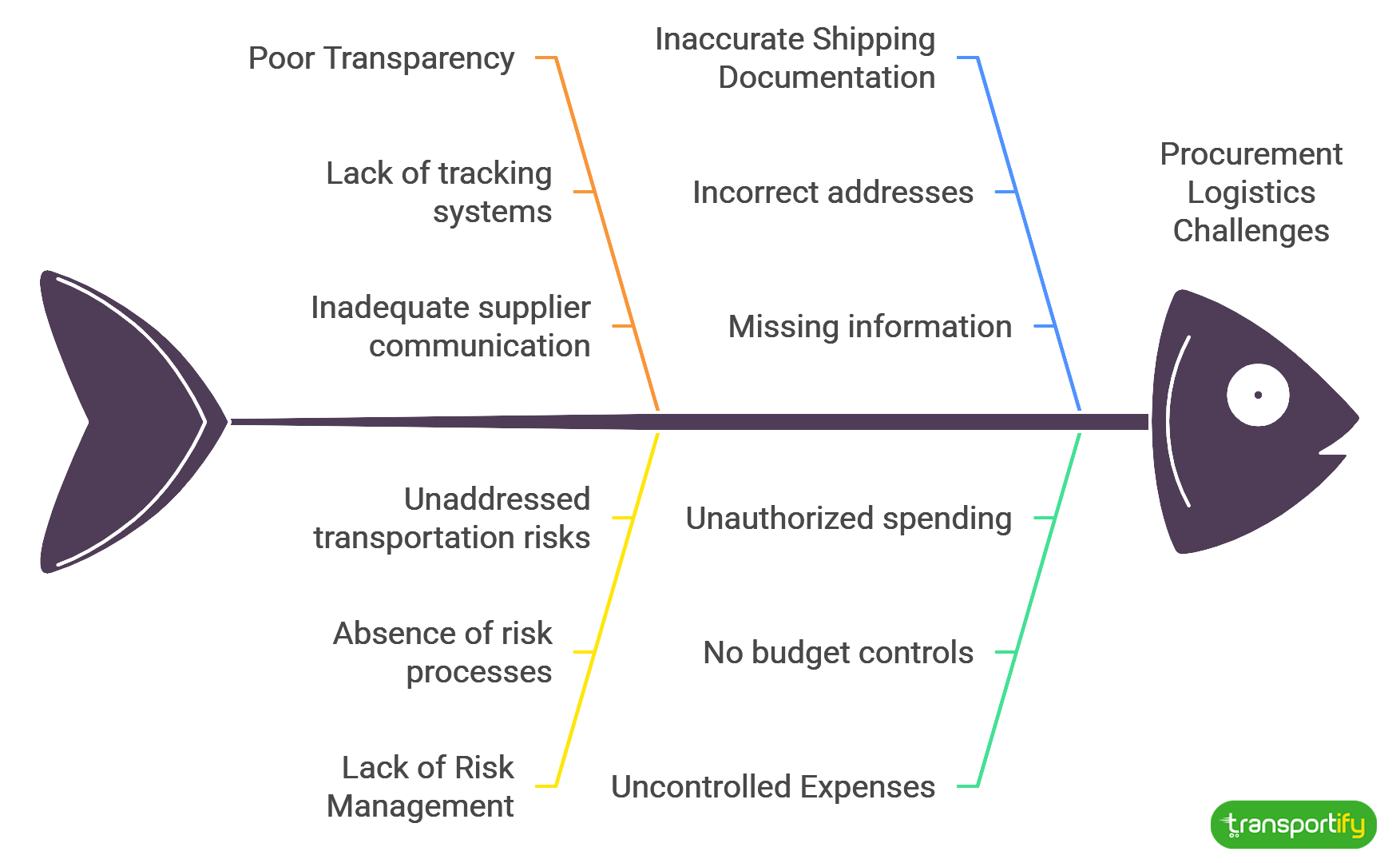
Poor Transparency in Supply Chain Management
One of the most common problems companies face when it comes to procurement in logistics is poor transparency in supply chain management. When there is a lack of transparency, tracking goods and materials as they move through the supply chain can be difficult. This can lead to delays and errors. In addition, it can be difficult to identify where problems occur and how to fix them.
Solution:
A system that tracks cargoes as they move through the supply chain is necessary to overcome this challenge. This can be done using GPS tracking devices or by implementing a software system that provides visibility into the supply chain. In addition, it is important to communicate regularly with your suppliers and transportation partners to ensure they know your expectations and needs.
Lack of Risk Management
An important part of procurement in logistics meaning is risk management. Some risks that need to be considered include transportation risks, supplier contracts, product availability, and possible fraud. Many companies lack a formal risk management process, leading to problems.
Solution:
To overcome this challenge, it is important to have a robust risk management process in place. This should include identifying risks, assessing their impact, and developing mitigation strategies. In addition, it is important to communicate with your suppliers and transportation partners about your risk management process and expectations.
Inaccurate Shipping Documentation
Another common challenge companies face in procurement logistics is inaccurate shipping documentation. This can lead to delays in shipments, damaged goods, and even loss of money. Inaccurate shipping documentation can be caused by many factors, such as incorrect addresses, missing information, or incorrect product descriptions.
Solution:
To prevent this from happening, it is important to have a system in place for tracking and managing shipping documentation. This can be done using software or manually reviewing documents before they are sent out. In addition, it is important to have a process for correcting errors and updating information.
Uncontrolled Expenses
One of the biggest challenges companies face when it comes to procurement logistics is uncontrolled expenses. Operating with uncontrolled expenses can lead to a number of problems, such as cash flow issues, loss of profits, and even bankruptcy. These problems are tough to overcome and can majorly impact the business.
You can book the Transportify trucks and vehicles at a good price.
| Vehicle Type | Dimensions/ Weight Limits | Base Price (Metro Manila) | Base Price (Outside Metro Manila) | Base Price (Visayas/Mindanao) |
|---|---|---|---|---|
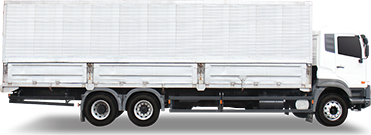 Wing Van Wing Van | 32 to 40 x 7.8 x 7.8 ft 12000kg to 28000kg | 7000 PHP | 6500 PHP | 6500 PHP |
| 18 x 6 x 7 ft 7000kg | 4850 PHP | 4850 PHP | 4850 PHP | |
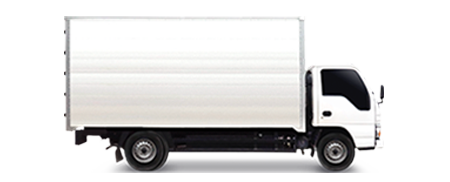 Closed Van Closed Van | 10 to 14 x 6 x 6 ft 2000kg to 5000kg | 1600 PHP | 1450 PHP | 1450 PHP |
 Open Truck Open Truck | 10 to 21 x 6 ft x open 2000kg and 7000kg | 2300 PHP | 1950 PHP | 1950 PHP |
 L300/Van L300/Van | 8 x 4.5 x 4.5 ft 1000kg | 415 PHP | 374 PHP | 335 PHP |
 Small Pickup Small Pickup | 5 x 5 ft x open 1000kg | 418 PHP | 338 PHP | 325 PHP |
| 5.5 x 3.8 x 3.8 ft 600kg | 375 PHP | 292 PHP | 275 PHP | |
| 5 x 3.2 x 2.8 ft 200kg | 240 PHP | 210 PHP | 160 PHP | |
| 3.5 x 2 x 2.5 ft 200kg | 220 PHP | 190 PHP | 140 PHP |
Solution:
The best way to overcome this challenge is to implement a system for controlling expenses. This system should include setting budgets, tracking spending, and approving purchases. For example, all transportation-related expenses should be approved by the transportation manager. Also, it is important to have a process for investigating and addressing any unauthorized spending.
Operating with Inaccurate Data
Inaccurate data is a major problem for companies when it comes to procurement in logistics. This is because inaccurate data can lead to shipments, invoices, and even transportation planning errors. These errors can have a major impact on the business, especially its image or brand. A bad image can lead to a loss of customers and revenue because people do not want to work with or buy from a company they cannot trust.
Solution:
The best way to overcome this challenge is to put a system in place for tracking and managing data. This can be done using software or manually reviewing data before it is used. Moreover, make sure to communicate with your suppliers and transportation partners about your expectations for data accuracy.
How to Streamline Your Procurement Logistics?
There are many ways to streamline procurement in your supply chain. Some of these include:
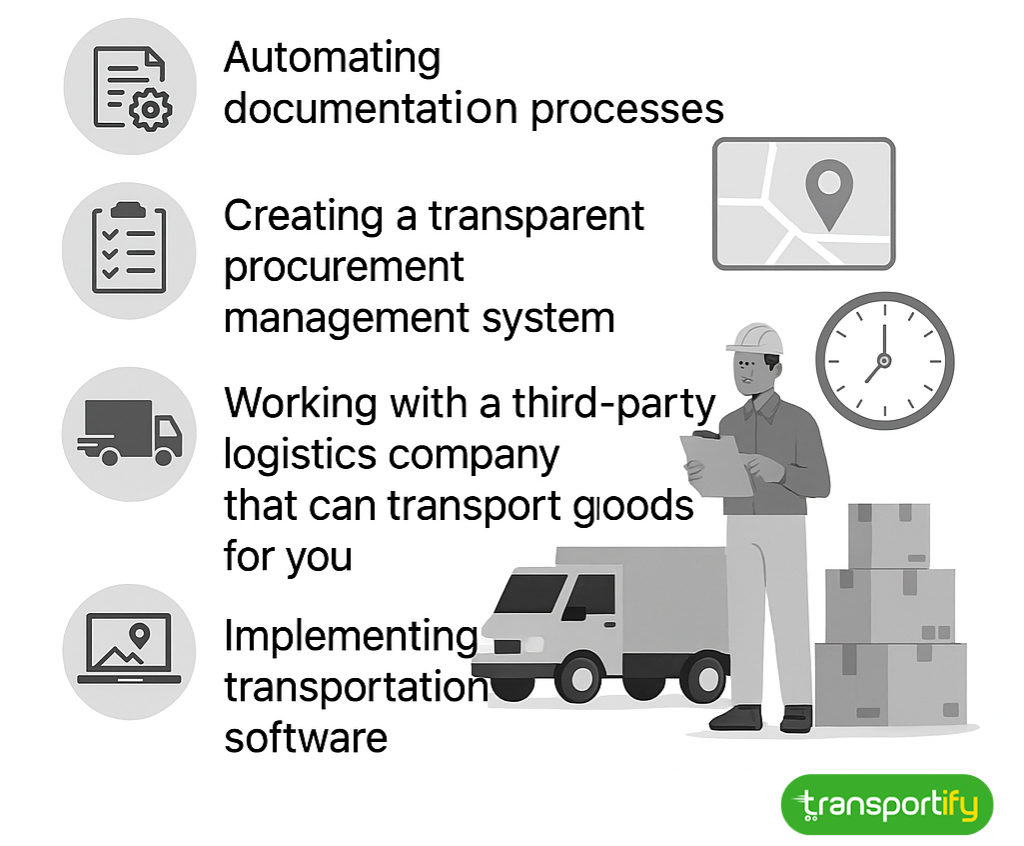
- Automating the documentation processes
- Creating a transparent procurement management system
- Working with a third-party logistics company that can transport goods for you
- Implementing transportation software
Each option has advantages and disadvantages, so choosing the one that best fits your needs is important. Also, partner with a trusted logistics company offering transport services to a wider area. Doing this can help you save time and money while ensuring that your shipments are delivered on time and in good condition.
SEE ALSO:
- What is a Third Party Logistics (3PL)?
- Three Types of Logistics Explained: Inbound, Outbound, Reverse
- A Guide To Efficient Outbound Logistics Solutions For Your Company
Improve Your Procurement Logistics with Transportify!
Looking for a company that can help you transport your procured goods? Transportify is the perfect solution! We offer a wide range of transportation services, from parcel delivery to trucking, that can be customized to your specific needs. In addition, our transportation management system is easy to use and comes with various features, such as real-time tracking and automated shipping.
If you’re interested in learning more about our services and how it can help your procurement logistics, contact Transportfiy today! We would be happy to answer any of your questions.
 | or |
Frequently Asked Questions:
What does procurement logistics mean?
🚚 Procurement logistics refers to the process of acquiring goods and services from suppliers to support an organization’s operations. This can include sourcing, negotiation, contracting, transportation, and storage. Procurement logistics is a critical part of supply chain management and can significantly impact an organization’s bottom line. Proper management of procurement logistics can help ensure that goods and services are obtained in a timely and cost-effective manner.
What are the most common challenges with procurement logistics?
🚚 One of the most common challenges with procurement logistics is ensuring that all products and materials are procured promptly and efficiently. This can be difficult to achieve if there is a large volume of products or materials to be procured or if the procurement process is complex. In addition, procurement logistics can also be challenging if suppliers are located in different parts of the world. Another common challenge is accurately tracking and managing all procurement data, as inaccurate data can lead to shipment errors, invoices, and transportation planning. Finally, another challenge companies face is maintaining communication with suppliers and transportation partners to ensure everyone is on the same page.




 INSTANT QUOTE
INSTANT QUOTE

 Chat
Chat